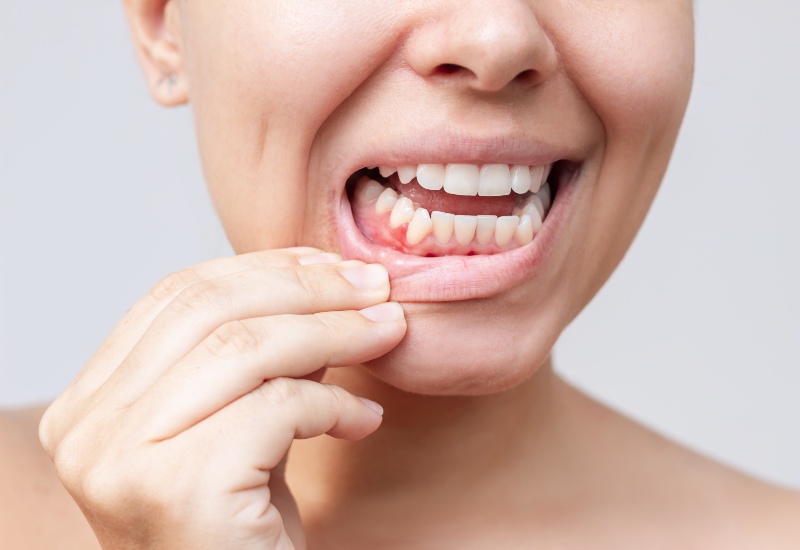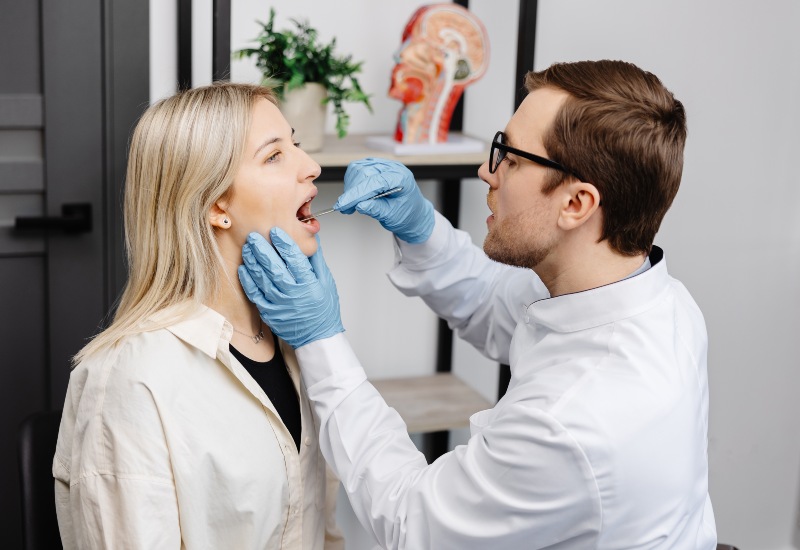Common Warning Signs of Gum Disease in Its Early Stages
Recognizing Early Warning Signs of Gum Disease in Antioch, IL
Healthy gums are the foundation of a healthy smile, and ignoring them can lead to serious oral health problems. Gum disease often starts silently, with subtle symptoms that are easily overlooked. For patients in Antioch, IL, recognizing the early warning signs of gum disease can prevent more severe issues. Below, we’ll walk you through the common warning signs of early-stage gum disease. By learning what to look for, you can protect your oral health and understand when it’s time to seek professional care.

What Is Gum Disease?
Gum disease is typically caused by poor oral hygiene habits that allow plaque to build up on the teeth and harden. It has two main stages: gingivitis, the earliest and mildest stage, where inflammation is limited to the gums and is reversible with treatment; and periodontitis, a more severe stage that develops if gingivitis is untreated. In periodontitis, the infection spreads, damaging bone and connective tissues and potentially leading to tooth loss. Since initial symptoms are often subtle, many people don’t realize they have gum disease until it’s advanced, making it crucial to understand early warning signs.
Common Early Warning Signs of Gum Disease
How can you tell if your gums are in trouble? Pay attention to your mouth and watch for these periodontal disease indicators:
- Bleeding Gums – Bleeding gums are a common sign of gum disease. You might notice a little pink in the sink after brushing or flossing. While it might seem minor, healthy gums shouldn’t bleed from regular cleaning. This bleeding is a classic symptom of inflammation caused by the buildup of plaque in the gums.
- Swollen, Red, or Tender Gums – Healthy gums are typically firm, pale pink, and fit snugly around your teeth. If you notice your gums are puffy, bright red, or purplish, it’s a clear sign of inflammation. You may also experience sore gums or tender gums when you touch them, brush your teeth, or eat certain foods.
- Persistent Bad Breath – Everyone gets bad breath now and then, but if you have bad breath that won’t go away no matter what you do, it could be a sign of gum disease. This condition, known as halitosis, can be caused by the bacteria that accumulate in the plaque on your teeth and gums.
- Gum Recession – Have you noticed your teeth looking longer than usual? This could be due to gum recession, where the gum tissue pulls away from the teeth, exposing more of the tooth or even the root. Receding gums create small pockets between the teeth and gums where plaque and bacteria can easily build up, making the problem worse.
- Sensitive Teeth – While tooth sensitivity can have many causes, it can also be a sign of gum disease. Receding gums expose the dentin, the sensitive layer of your teeth beneath the enamel. This can cause pain when you consume hot or cold foods and drinks.
Why Early Detection Matters
Identifying gum disease early is critical. When it’s still gingivitis, the condition is completely reversible. A professional dental cleaning, combined with a consistent at-home oral hygiene routine, can restore your gums to full health. If left to progress to periodontitis, the damage to your bone and gum tissue is often irreversible. While treatments can stop the disease from worsening, they can be more invasive and costly. Early detection saves you from pain, complex procedures, and the potential for tooth loss.

How to Prevent Gum Disease
The best way to deal with gum disease is to prevent it from starting in the first place. Here are some effective habits to adopt:
- Brush Twice a Day – Brush your teeth twice daily with a soft-bristle toothbrush.
- Floss Daily – Flossing every day helps remove plaque from under the gum line, where your toothbrush can’t reach.
- Use Mouthwash – An antiseptic mouthwash reduces plaque and kills bacteria that cause gingivitis.
- Schedule Regular Dental Checkups – Visit your dentist twice yearly for professional cleanings and exams.
When to See a Dentist
If you notice any gum disease warning signs, don’t wait for them to worsen. Schedule an appointment with your dentist as soon as possible. A professional examination can determine the health of your gums and whether you have gingivitis or a more advanced form of periodontal disease. Your dentist can provide the necessary treatment and help you improve your oral hygiene routine.
Take Control of Your Gum Health Today
Your gums are essential for a lifetime of healthy teeth. By recognizing the early warning signs of gum disease, you can take action before minor issues become major problems. Paying attention to your oral health and maintaining a good hygiene routine are your best defenses against periodontal disease. If you’ve noticed any early gum disease symptoms, such as bleeding, swelling, or tenderness, we’re here to help. Schedule a consultation with us today for a comprehensive evaluation and a personalized plan to keep your smile healthy and bright.
Frequently Asked Questions
Can gum disease be cured?
Gingivitis, the earliest stage of gum disease, is completely curable with professional treatment and consistent at-home care. More advanced stages, like periodontitis, can be managed to prevent further damage, but the effects are often irreversible.
Is it normal for gums to bleed a little?
No, healthy gums shouldn’t bleed during regular brushing or flossing. Bleeding is a common sign of inflammation and an early indicator of gum disease.
Can stress cause gum disease?
While stress doesn’t directly cause gum disease, it can weaken your immune system. This can make you more susceptible to gum infections. Stress can also lead to bad oral hygiene, which increases the risk.
Are some people more prone to gum disease?
Yes, factors such as genetics, smoking, diabetes, certain medications, and hormonal changes (like those during pregnancy) can increase a person’s risk of developing gum disease.
